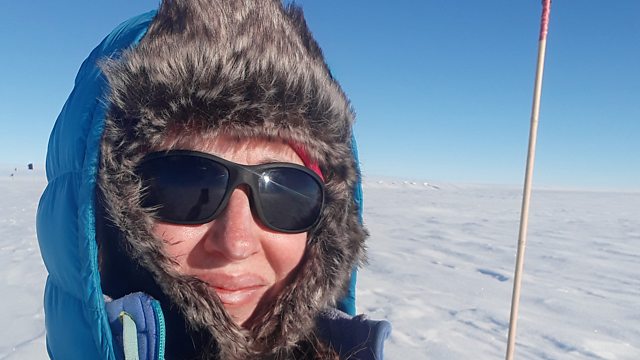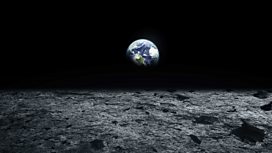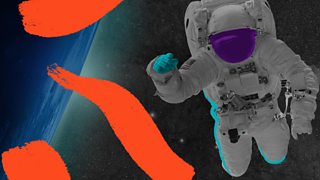Katherine Joy on moon rock
To celebrate the 50th anniversary of the Apollo moon landing, Jim Al-Khalili talks to geologist Katherine Joy about the second wave of lunar exploration.
Katherine Joy studies moon rock. She has studied lunar samples that were brought to earth by the Apollo missions (382kg in total) and hunted for lunar meteorites in Antarctica, camping on ice for weeks on end and travelling around on a skidoo. Working at the forefront of the second wave of lunar exploration, she studied remote sensing data from Europe’s first mission to the moon, Smart 1 which launched in 2003 and data from many subsequent missions. She tells Jim Al-Khalili why she believes the moon is the most exciting destination in our solar system and explains what it can tell us about the long history of planet earth.
Beneath the magnificent desolation of the moon’s surface, multicoloured rocks contain vital clues about the history of our solar system. Every crater on the moon is evidence of a collision and the chemistry of these rocks tells us when these collisions took place. Katherine’s research supports the idea that a period known as the late heavy bombardment was a particularly turbulent time. Could the late heavy bombardment explain the origin of life on earth?
Producer: Anna Buckley
Last on
More episodes
Previous
![]()
Nine weird and wonderful ways in which the moon affects the world
From how we sleep, to when we prune our plants, to the height of the oceans’ tides.
Broadcasts
- Tue 16 Jul 2019 09:00����ý Radio 4
- Tue 16 Jul 2019 21:30����ý Radio 4
Featured in...
![]()
Space
Brian Cox, music from space films and landing on moon rocks
Sleep – the mystery state
Is your mind a machine?
Daniel Dennett thinks so. Here is what we learned from his Life Scientific.
Podcast
-
![]()
The Life Scientific
Professor Jim Al-Khalili talks to leading scientists about their life and work.





